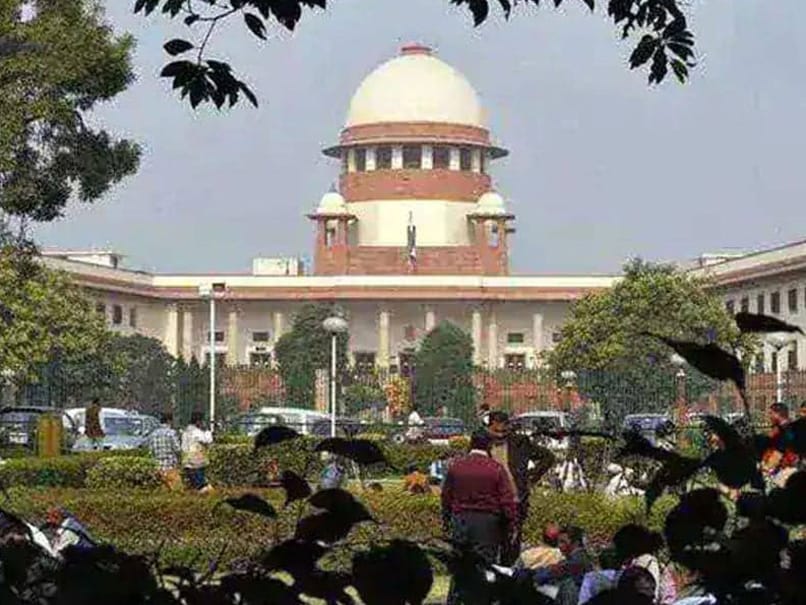The judge should have analyzed why such an ex parte order was essential, the top court said.
New Delhi:
Courts should not issue ex-parte orders against the publication of a news article, except in exceptional cases, as this could seriously affect the author’s right to freedom of expression and the public’s right to know, the Supreme Court said.
Apart from the court’s order directing global media group Bloomberg to remove an allegedly defamatory news article against Zee Entertainment, the top court said orders against publication of material should be issued only after a full-fledged trial.
“Granting an interim injunction against the publication of an article may seriously affect the right to freedom of expression of the author and the right of the public to know,” said a three-judge bench headed by Chief Justice DY Chandrachud.
The bench, also comprising Justices JB Pardiwala and Manoj Misra, said an order, especially ex-parte, should not be issued without finding that the content being restricted is ‘malicious’ or ‘palpably false’.
“Granting interim orders in a nonchalant manner before the trial begins results in stifling public debate. “In other words, courts should not pass ex-parte orders except in exceptional cases where the defendant’s defense would undoubtedly fail at trial,” the court said. The SC said that granting a preliminary injunction before the trial begins often acts as a “death sentence” for the material seeking publication long before the allegations are proven.
“When granting ad-interim injunctions in defamation lawsuits, courts should also take into account the possibility of using lengthy litigation to prevent freedom of expression and public participation,” the report said.
The top court was hearing a plea filed by Bloomberg against the Delhi High Court’s March 14 order, which dismissed the appeal against the court order.
The Supreme Court said that the trial judge’s error had been perpetuated by the High Court and that the judge’s order did not address the prima facie strength of the plaintiff’s case nor the balance between convenience and irreparable hardship. that is caused.
The judge should have analyzed why such an ex parte order was essential, after setting out the factual basis and the defendant’s claims before the judge, he said.
Since this is a case of an injunction issued in a defamation proceeding against a media platform, the impact of the injunction on the constitutionally protected right to freedom of expression warrants further intervention, the court added.
“The error committed by the judge was upheld by the Supreme Court. Merely to find that there is a prima facie case for granting an injunction, that the balance of convenience is in Zee’s favor and that irreparable harm would be caused, would not amount to destroying the spirit to apply the case,” the bench, also comprising Justices JB Pardiwala and Manoj Misra, said while granting Zee liberty to approach the court again with his prayer request.
The Apex Court clarified that the above portion of the judgment and order should not be construed as a commentary on the merits of the present case and the purpose of the above portion is to provide the broad parameters to be kept in mind while the handling of the request for a provisional measure.
Responding to the top court order, the Bloomberg News spokesperson said: “We are very encouraged by today’s decision by the Supreme Court of India, and we continue to stand by this story.” Justice Shalinder Kaur of the High Court had said that there was no need to interfere with the ex-parte interim order of the Additional District Judge (ADJ) on Zee Entertainment Enterprises Limited’s suit over the article published on February 21, and ordered Bloomberg to comply with the directive within three days.
On March 1, the ADJ had ordered Bloomberg to remove the allegedly defamatory article within a week, saying Zee had established a “prima facie case” for passing ad-interim ex-parte injunctions.
The ADJ had said the balance is in Zee’s favor and the company could suffer irreparable losses and injuries if the injunction is not granted.
The appellant argued before the Supreme Court that the lawsuit was intended to intimidate and silence their right to free and fair expression.
It was also alleged that the ADJ had not given the portal the opportunity to present several other previously published articles and was denied the right to argue their case.
(Except for the headline, this story has not been edited by WhatsNew2Day staff and is published from a syndicated feed.)


